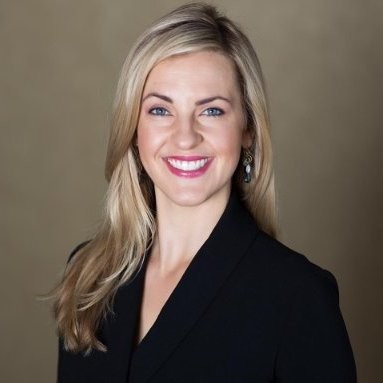I am delighted to talk today with Jennifer Risher, author of the book We Need to Talk: A Memoir About Wealth and initiator of the social giving movement encouraging giving during COVID-19 called #HalfMyDAF.
Subscribe on Apple Podcasts, rate, and review.
Money is a currency. Let’s have taboo conversations for the commonwealth.
“When we don’t talk about something, it tends to loom large and take on a life of its own. When we don’t talk about money we are giving it so much power. Let’s take power back and put the money in its place” Click To TweetWhen it comes to money-related issues, mum’s the word. Talking about wealth right now couldn’t be more charged. Did you know that 8 out of 10 people who are wealthy grew up in middle class or poor neighborhoods?! I didn’t. Have you ever felt bad for the rich? I have. Why? They are human just like everyone else!
There’s a lot of stigma around the issue. This is why I am delighted to talk today with Jennifer Risher, author of the book We Need to Talk: A Memoir About Wealth and initiator of the social giving movement encouraging giving during COVID-19 called #HalfMyDAF. This effort called for spending (donating) the $120 Billion parked into Donor Advised Funds NOW.
So many people go without healthcare, food, housing, and education. Attributing value to socioeconomic status makes talking about money, and wealth especially, taboo. It is that silence that sanctifies us from examining our relationship with money and keeps the status quo in place. When we avoid discussions around money, we stay in our bubble, we remain unaware, and we don’t hold ourselves accountable. That’s why we need to hear people’s stories, understand our own story, and better process our emotions regarding wealth.
A memoir about wealth
When Jennifer Risher joined Microsoft in 1991, she met her husband, and with him became an extra-lucky beneficiary of the dot-com boom. By their early thirties, they had tens of millions of dollars. Today, there are millions of people like her. We Need to Talk: A Memoir About Wealth tells her story and explores the impact of wealth on identity, relationships, and family. Jen wants to help us talk about money as a way to connect, learn, and shake up the status quo.
Life is not fair, but the more we can understand, the better we can address the issues that permeate society. Wealth is isolating and people who aren’t connected — who are estranged — won’t be at their most generous or empathetic. Jen’s story offers an insight into how people handle newfound wealth and the changes that happen in relationships when money comes around.
We need to talk about Donor Advised Funds
Donor Advised Funds (DAFs) are like charitable checking accounts, and they are on the rise, big time, in America. Today, there is roughly $120 Billion sitting in DAFs. Believe it or not, an unintended consequence of DAFs is that while funds build, distribution is neglected. Perhaps it’s that our lives are busy and we forget, or perhaps we don’t know when or where to donate? Perhaps we need more advisors guiding and encouraging us as philanthropists. Either way, Jen and her husband David have a clear CTA (call to action): #HalfMyDAF challenges donors to put money to work NOW, moving it out of DAFs and community foundations to non-profits that are helping with food insecurity, education, domestic abuse, climate change and so much more.
DAFs allow donors to stay in anonymity. Nonprofits not being able to connect the dots and know who’s giving prevents them from being able to establish and sustain long-term donor relationships, which are so essential to philanthropy. #HalfMyDAF is that nudge to both connect with the organization and move money from the donor advised funds into the nonprofits. Offering $1M in matching grants and raising awareness about the issue, generated over $8.6M in funding for nonprofits, in just 5 months! By doing so, they inspired people to give, to talk about giving, and most importantly, build community around giving.
Let’s talk about money! As a takeaway from this episode, Jen shares five steps to holding a conversation about money issues:
- Identify it! Admit that money triggers emotions, and there’s an underlying conflict that keeps coming up.
- Set it! Schedule a specific, emotionally-neutral time to hold the conversation.
- Name it! Start by acknowledging that the conversation may be uncomfortable and that it might get messy. Know that you’re embarking on an emotionally charged topic, which exposes vulnerabilities.
- Regulate it! Create a space to talk uninterruptedly about your feelings and shared goals of the conversation. (Try 5 minute per person to listen, and then respond.)
- Resolve it! Find solutions for how to handle these conversations or situational conflicts in the future that will bring you back to a place of safety and comfort when dealing with money conflicts.
Key Takeaways:
08:19 – Donor Advised Funds and the dynamic anonymity creates between the person and the nonprofit.
14:07 – We need to talk: Breaking down the wealth taboos and stimulating conversations about things that are hard to talk about.
16:51 – The five steps to engage in conversation and overcome your relationship with money.
21:13 – How to achieve high-value conversations and relationships as a nonprofit and/or philanthropist (and avoid being awkward and uncomfortable around making the ask).
32:11 – What it’s like to talk about something deeply personal and taboo in order to be a change agent (as a book author and a podcaster).
40:22 – What we need to be doing in order to help fight the income gap and how gender roles affect our conversation around money.
Connect with Jen
Connect with Jen through LinkedIn
We Need To Talk: A Memoir About Wealth by Jen Risher
Episode Resources
Worldreader | Helping Readers Build a Better World
The Seven Faces of Philanthropy by Russ Alan Prince








Article Comments